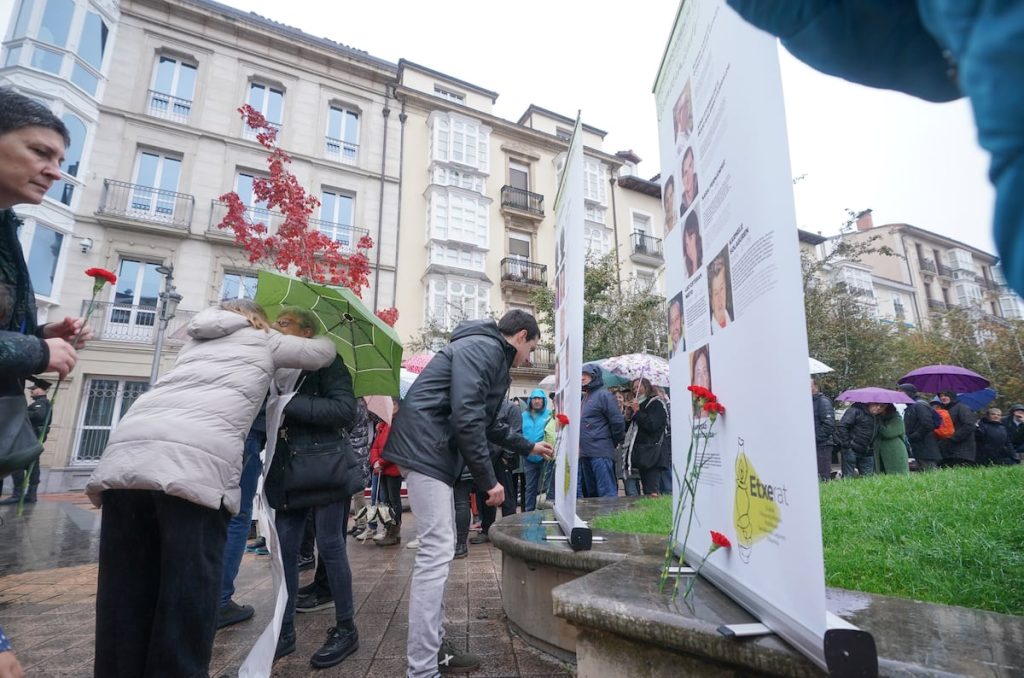Since 2010, Euskadi has designated November 10 as the Day of Memory in recognition of the victims of terrorism and political violence. However, it has been impossible to celebrate it together. EH-Bildu supports the particular tribute of Etxerat, an organization that supports ETA prisoners, while the PP and Vox reject the tribute to victims of far-right terrorism and police abuse. This division was exacerbated by the national president of the PP, Alberto Núñez Feijoo, when he attempted to pit victims of ETA terrorism against victims of Francoism during the parliamentary debate on the Democratic Memory Law in July 2022. This caused a rift in Euskadi, with prominent associations like Covite and the Fernando Buesa Foundation rejecting Feijoo’s divisive tactics and supporting victims of Francoism.
Despite the widespread political division, the government of Euskadi – currently a coalition of PNV and PSE – has been working towards equal treatment for all victims since the end of ETA terrorism in 2011. Historian Antonio Rivera points out that there were multiple forms of violence in Euskadi, including ETA terrorism, far-right terrorism, and police abuse, all of which generated victims who deserve recognition. Additionally, there are victims of the Spanish Civil War and Francoism that also need to be acknowledged.
Rivera highlights Euskadi’s extensive experience in dealing with various forms of violence, which will be valuable in the national Democratic Memory Law commission. Despite a reduction in violence since 1983, the impact of ETA terrorism, with 853 murders between 1968 and 2011, has been significant. Laws passed in 1999 and 2011 have provided support to victims of ETA, but there is a need to address other forms of violence, particularly far-right terrorism and police abuse.
Efforts to recognize victims of political violence have been ongoing in Euskadi. Laws passed in 2012 and 2016 under different lehendakaris expanded recognition to victims of rights violations by political violence, including police abuse. Both the central government and the Basque government have established memorials to victims of terrorism, but there is a need to ensure all victims receive equal recognition and that divisive political tactics are avoided.
The current government of Euskadi is focused on addressing the forgotten victims of the past, including those from the early years of the transition period, far-right groups, and police violence. They are committed to creating a comprehensive approach to memory that includes all victims and exposes the various forms of terrorism and abuse that occurred in Euskadi. The goal is to provide a critical memory framework that allows for a more comprehensive understanding of the region’s history and the impact of political violence.


